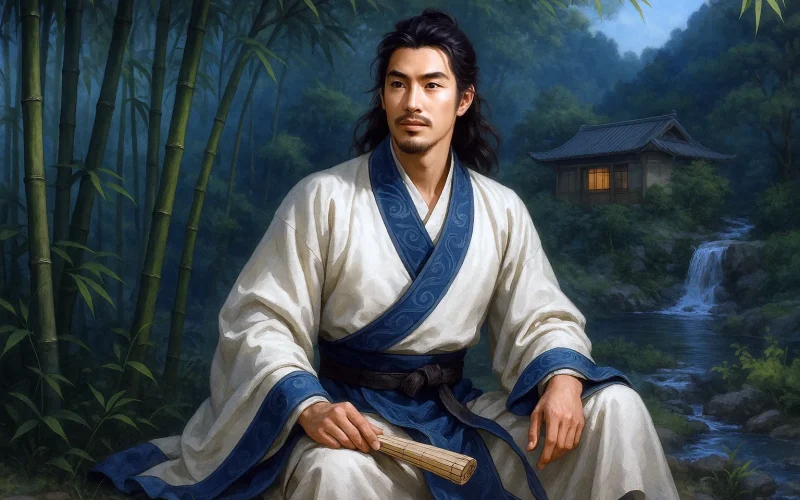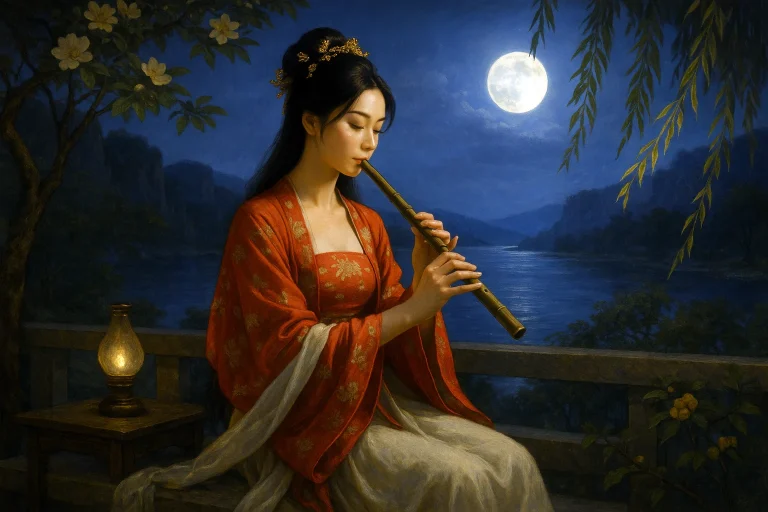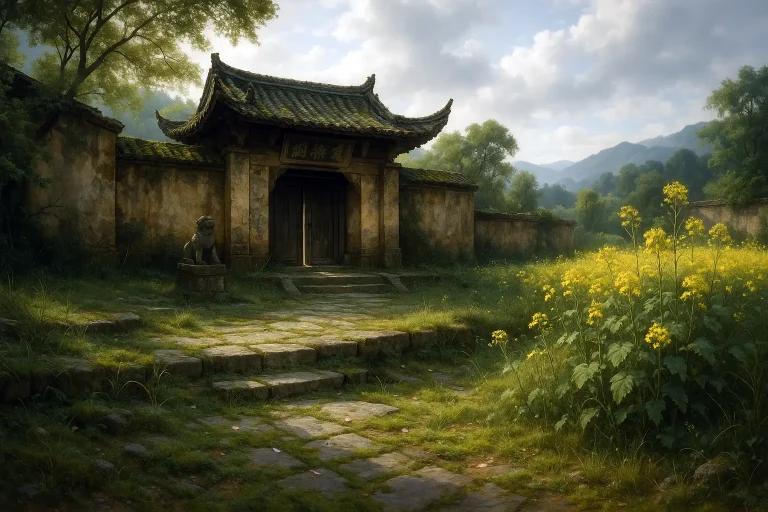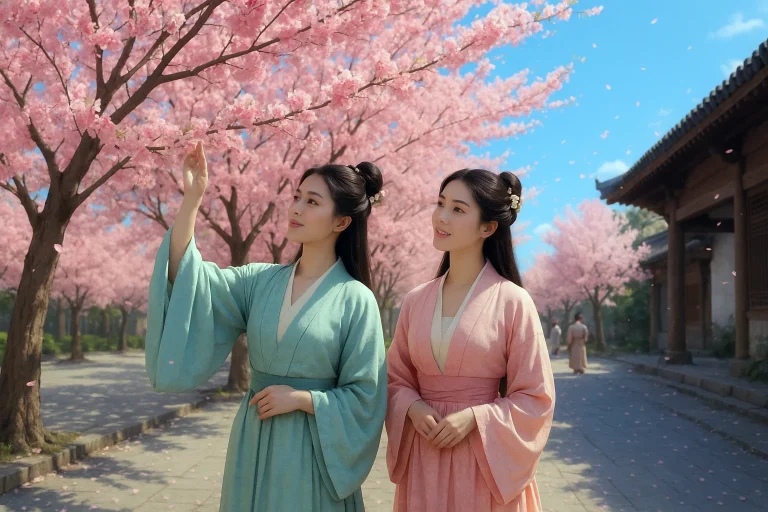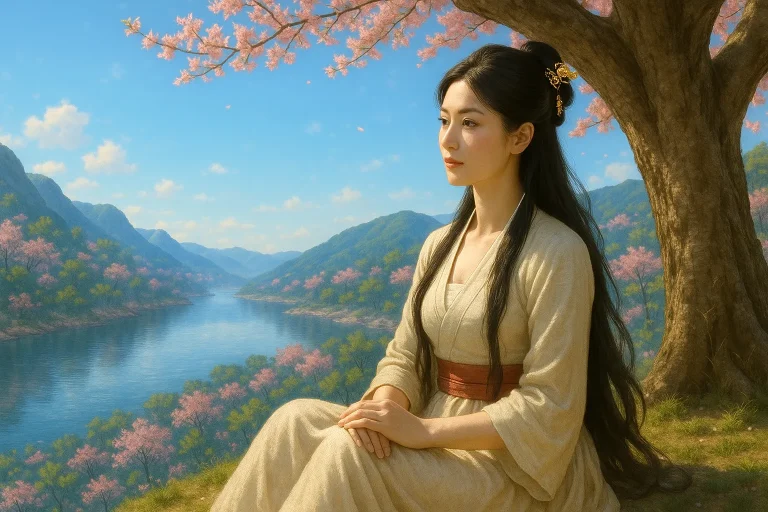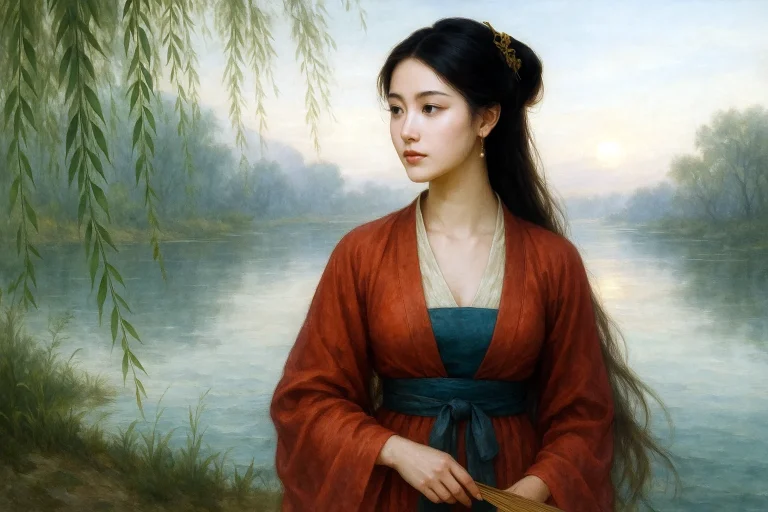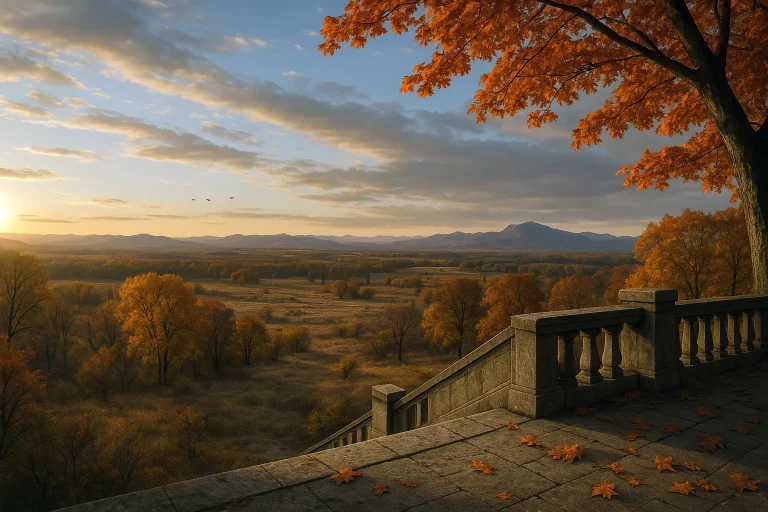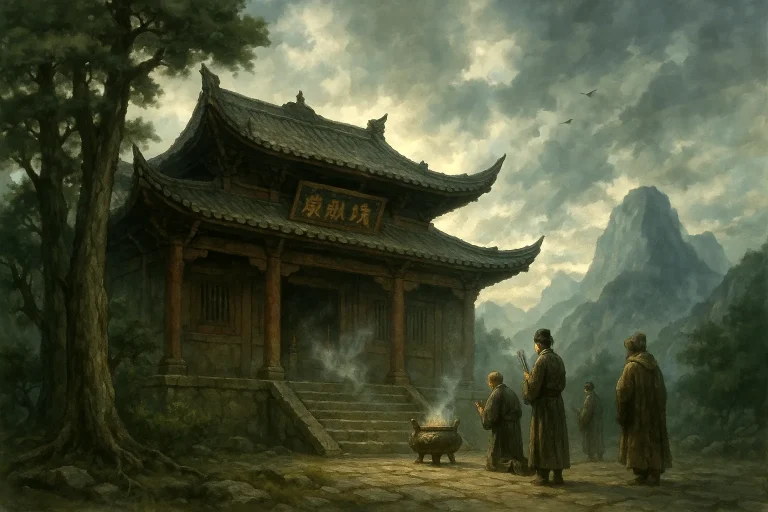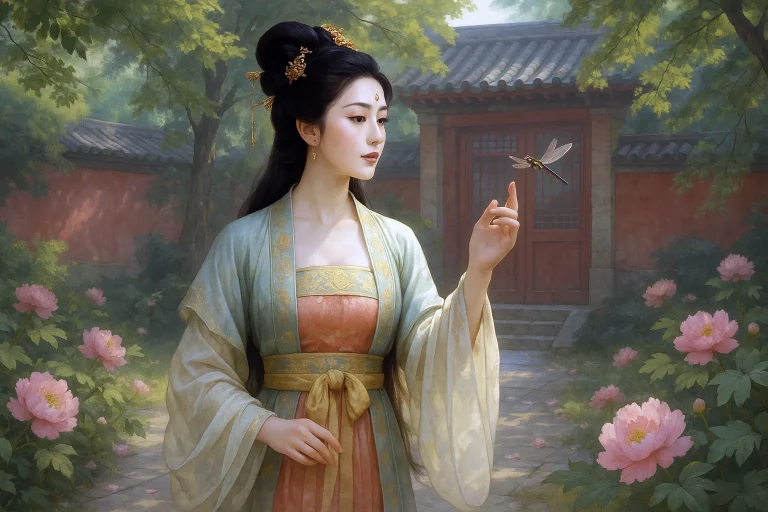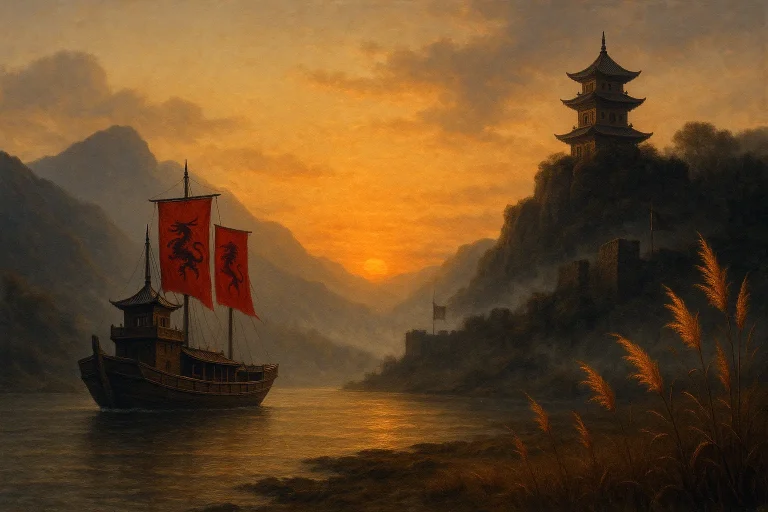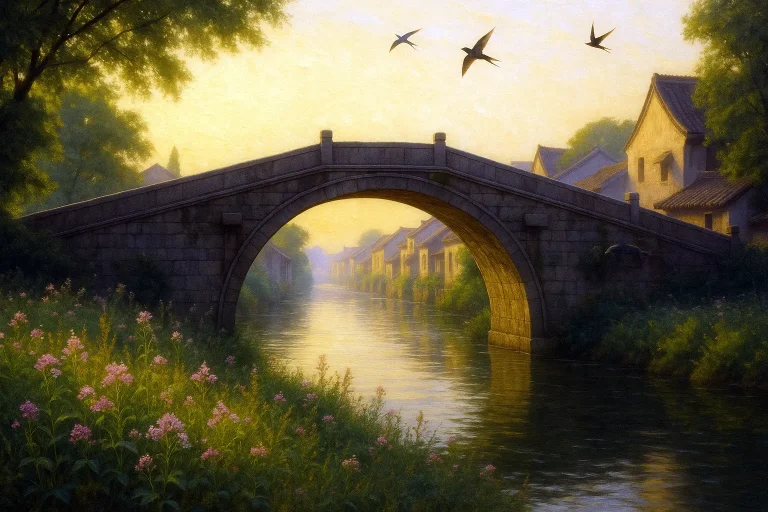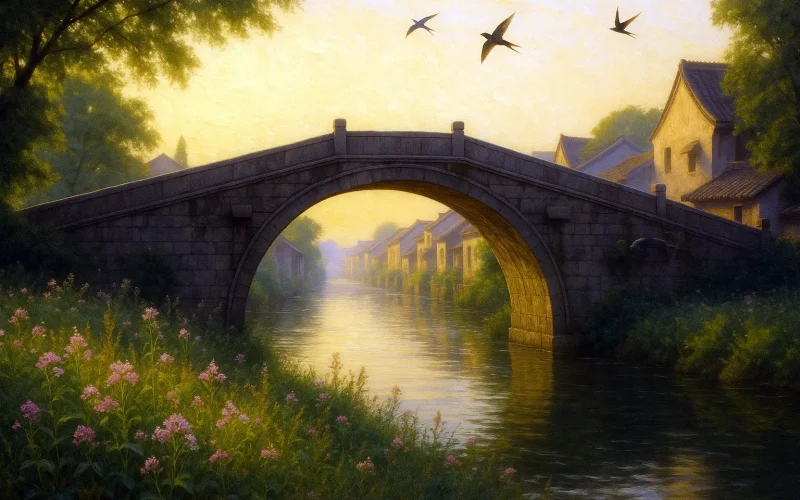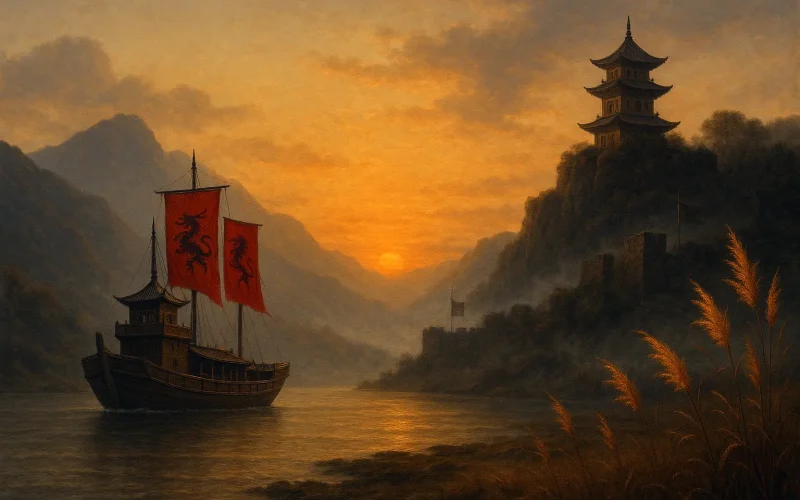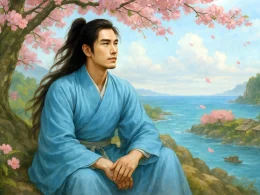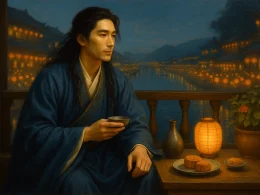Liu Yuxi (刘禹锡), 772 - 842 A.D., was a native of Hebei and later moved to Luoyang. In 91 A.D., Liu Yuxi took part in the political reform of Wang Shuwen's group with Liu Zongyuan. After the failure of the reform, he was relegated to Changde in Hunan Province, and then moved to Lianzhou to become the assassin of Lianzhou. His poems are characterized by bright and lively language, loud and harmonious rhythms, and an eloquent style that was highly regarded by the people of his time, and he was known as“诗豪”.
Main poems
Main Experiences
Liu Yuxi was born in 772 A.D. in Jiaxing County after the Jiahe stage. Liu Yuxi spent his childhood and teenage years in the south of the Yangtze River, where the economy was more developed and the cultural atmosphere was strong. His father, Liu Xu, was a typical Confucian scholar and educated his children very strictly. Liu Yuxi was deeply influenced by his family's teachings from an early age, and he was bright and early, modest and studious. Before he was nine years old, he had already studied poetry writing with the famous poet monks Kyauk Ran and Ling Che, and was deeply appreciated by his teachers. The famous poet of the time, Quan Deyi (权德舆) was even a great admirer of Liu Yuxi. Liu Yuxi was an erudite scholar from a young age. In addition to the Confucian classics, he also dabbled in the Hundred Schools of Thought, medicine, and astronomy, thus laying a good foundation of knowledge, which was instrumental in the formation of his outlook on life and the development of his literary and artistic creation.
In 790 A.D., the young and talented Liu Yuxi left his hometown and traveled north to Chang'an, where he prepared to take the examination for the Scholarship of the Imperial College. In 793 A.D., Liu Yuxi was admitted to the same list as Liu Zongyuan, and in the same year he was admitted to the section of erudition; two years later, he was admitted to the section of the Ministry of Justice, and was formally awarded the post of the Prince's School Secretary, thus embarking on a career path that was characterized by ups and downs, as well as many ups and downs.
Liu Yuxi had political ambitions. In 800 AD, he was appointed as the secretary of the Xu Sihao Festival Minister on the recommendation of Du You, and then went to Yangzhou with Du You to serve as the secretary of the Yangzhou Curator. Two years later, he was transferred to the post of the chief bookkeeper of Weinan County in Jingzhao Prefecture, and in the following year, he was moved to the post of supervising royal historian. During the period of Du You curtain, he participated in the crusade against the Xuzhou rebel army, experienced a short period of military career, opened up the horizons, and grew his talent. When he served in the imperial court, he was a colleague of Han Yu and Liu Zongyuan. At that time, the Tang dynasty was facing many serious problems, such as local clans and towns, the dictatorship of eunuchs in the imperial court, the financial difficulties of the state, and the lack of livelihood for the people. Liu Yuxi made friends with Wang Shuwen and other knowledgeable people. Under Wang's leadership, he and a group of young officials, such as Liu Zongyuan, actively researched and discussed political innovations, and began to become rising stars in the political arena.
In 805 A.D., Liu Yuxi was a core member of the reform school. Liu Yuxi regarded the revolution as a great opportunity to realize his political ambitions and display his talents. He had to handle a large number of letters and receive many visitors every day, and he was constantly occupied with his work. Liu Yuxi's outstanding talent was appreciated by Wang Shuwen and others, who even praised him for his “prime minister's skill”.
In 815 A.D., the court summoned Liu Yuxi and Liu Zongyuan back to the capital. A ray of light seemed to appear in front of his eyes again, and he was ready to revitalize himself and try to make a difference. However, a sudden and heavy blow came to him again because of a poem.
In 821 A.D., Liu Yuxi was reappointed by the imperial court as the assassin of Kui Prefecture (now Fengjie, Chongqing). After carefully examining the local situation, he wrote a letter to the court, hoping that the new emperor, Emperor Mu Zong, would be receptive to his words of wisdom and take an interest in the affairs of the government. However, Mu Zong's response was indifferent, which was extremely disappointing to Liu Yuxi.
In the summer of 824 A.D., Liu Yuxi was transferred to the post of assassin of Hezhou (present-day He County, Anhui Province). He set out from Kui Zhou and traveled along the way to visit famous places. During his banishment to Longzhou, Lianzhou, Kuizhou, and Hezhou, Liu Yuxi was able to inquire about the plight of the people wherever he went, and he did not lose his integrity. However, his long relegation career made his spirit extremely bitter, and from the relegation of Longzhou, he had a lot of contacts with monks, and to a certain extent, he took the Buddhist thought as his spiritual support. Two years after the transfer and the state, he was ordered to leave his post to return to Luoyang, passing through Yangzhou, and due to the illness of the dismissal of the assassin of Suzhou back to Luoyang, Bai Juyi met, and from then on the two poems and writings close to each other.
In 829 A.D., on the recommendation of Pei Du, who was then prime minister, Liu Yuxi was appointed to the post of minister of rituals, as well as bachelor of the Academy of Collected Wisdom. Serving in the Academy of Collective Virtues meant that he had the opportunity to take up important positions. Liu Yuxi wanted to take this opportunity to make a great career, but the scourge of eunuchs and cronyism in the imperial court became more and more intense.
In 831 A.D., Pei Du was ostracized from the court, and Liu Yuxi lost his chance to rise again. In the same year, Liu Yuxi was transferred to the post of Suzhou Assassin, where he did his best to help the victims of the disaster. The people of Suzhou later called him one of the “Three Wise Men” along with Wei Yingwu and Bai Juyi, two other famous poets who had made a lot of achievements during their tenure as Suzhou Assassins, and they built the Three Wise Men's Hall, where sacrifices were made to commemorate them at all times of the year. Later, Liu Yuxi was appointed as the assassin of Ruzhou (present-day Henan Province) and Tongzhou (present-day Dali, Shaanxi Province).
In 841 A.D., Liu Yuxi was appointed Minister of Rites and Guest of the Crown Prince. In July of the following year, he died at his residence at the age of seventy-one, and was given the title of Minister of Military Affairs by the court and buried in the Danshan Plain in the west of Xingyang County. A generation of poets, finally finished his long and bumpy road of life.
Literary Achievements
Liu Yuxi was not only famous for his poems, but ultimately he is known primarily as a poet. After the development of Tang poetry into the Middle Tang, there was a parallel situation between Han poetry and Bai poetry, with the former being strange and bold, and the latter being popular and simple, and each leading the way, driving a new trend in the evolution of poetry. Liu Yuxi had a deep friendship with Han Yu and Bai Juyi, and often sang and exchanged poems with them. However, what is remarkable is that he always maintained his own unique artistic personality, was not swayed by the current trend, and finally took a different path between the two, coming out with a new and unique way. In the history of poetry, he wrote a colorful chapter.
Liu Yuxi's most distinctive poems are the folk songs, political satirical poems, historical poems, and the new poetic genre of lyrics. During the long years of his banishment to a faraway state, he consciously followed the example of Qu Yuan, learned the spirit of the great poet in composing the Nine Songs, and drew the essence from the folk ballads and eulogies, thus creating a new poetic style combining the poetry of the literati and the folk songs. His works are healthy and upward thinking, simple and unadorned language, rich and varied methods of expression, and even with a strong local flavor, truly realizing the elegance and popularity. His political satirical poems often use the technique of simile, using objects to satirize, saying this and the other, and putting sharpness into euphemism, while at the same time seizing the most typical significance and ironic meaning of things to develop, and conveying one's own viewpoints and attitudes through the detailed descriptions. As an exiled minister who was convicted and expelled, Liu Yuxi was not able to express his indignation directly, so he skillfully took the approach of singing history and wistfulness, borrowing the past to speak of the present, and integrating many factors such as worrying about the country and feeling the time, denying the characters, and expressing his embraces into his own poems, which greatly broadened and elevated the ideological horizon of the poems of singing history.






